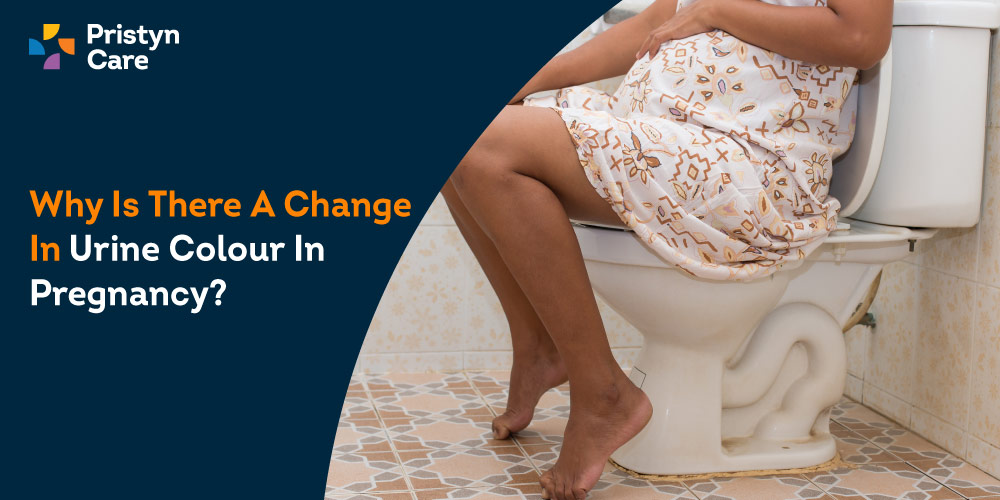Last Updated on January 6, 2025
No, you cannot get pregnant from a toilet seat. There is no way for sperm to live outside the body long enough to travel into the va*gina and fertilize an egg.
However, it is important to practice good hygiene when using public restrooms to prevent the spread of bacteria and viruses. Always use a barrier like toilet paper or a seat cover, and wash your hands thoroughly with soap and water after using the bathroom. Using public restrooms is a part of daily life that cannot be avoided entirely. While some people may experience concerns about getting pregnant or transmitting an std, it is not possible to contract these conditions from a toilet seat. However, there are other hygiene concerns that must be considered to prevent the spread of infectious diseases that can be found in this type of setting. This article will explore why it is impossible to get pregnant from a toilet seat and what steps can be taken to reduce your risk of infection when using public restrooms. Whether you are a frequent traveler or simply someone who is interested in staying healthy, this information will be valuable for you.

Credit: www.pristyncare.com
Related: Can You Eat Prosciutto When Pregnant?
Understanding The Risks Of Pregnancy Through Toilet Seats
Toilet seats are a common item in most households and public facilities. While there’s no doubt that toilets are a necessity, there are a lot of questions surrounding whether they can contribute to a person getting pregnant. In this section, we’ll take a closer look at the risks of pregnancy through toilet seats and clear up any misconceptions you might have.
Common Misconceptions About Toilet Seats And Pregnancy
There are a lot of myths floating around about toilet seats and pregnancy.
- Toilet seats can directly cause pregnancy.
- Sperm can survive on toilet seats for more than a few seconds.
- Women can get pregnant by sitting on a contaminated toilet seat.
These are all just myths and have no scientific basis. Now, let’s dive a little deeper into the scientific evidence behind toilet seat pregnancies.
Exploring The Scientific Evidence Behind Toilet Seat Pregnancy
There is no evidence to support the idea that toilet seats pose a risk of pregnancy.
- The likelihood of sperm surviving on a toilet seat is extremely low. Even if a man ejac*ulated onto a toilet seat, the sperm would not survive for very long outside the body.
- For pregnancy to occur, sperm needs to enter the female reproductive system. This is unlikely to happen from coming into contact with a contaminated toilet seat.
- Pregnancy occurs when sperm meets an egg. A toilet seat cannot provide the right environment for this to happen.
There is no evidence to support the idea of getting pregnant through toilet seats. It is important to remember to always practice safe sex to avoid unwanted pregnancy and sexually transmitted diseases.
Exploring Possible Ways Of Getting Pregnant In Toilet Seats
Can You Get Pregnant From A Toilet Seat?
Have you ever heard someone claim that they got pregnant from sitting on a public toilet seat? It’s a common misconception that you can get pregnant in such a manner. However, the chances of this are extremely low and almost impossible.
In this article, we will be exploring the potential ways of getting pregnant from toilet seats and debunking some myths associated with it.
The Role Of Sperm Survival In Toilet Seats
Sperm is the crucial element in the reproductive process, and the survival of sperm outside the body is relatively low. The survival rate of sperm depends on many factors, including hygiene, temperature, and humidity.
- Sperm cannot survive outside of the body for very long. Exposure to air, temperature fluctuations, and lack of fluids may quickly kill them.
- Sperm can only survive for a few minutes to a few hours outside the body and require specific conditions to maintain their viability.
- Toilet seats are not the ideal environment for sperm to survive or thrive, and the likelihood of a viable sperm surviving long enough to fertilize an egg is very slim.
The Potential Impact Of Fluid Transfers Through Toilet Seats On Pregnancy
Pregnancy can occur when viable sperm gets into the vag*ina and fertilizes an egg. While the chances of that happening on a toilet seat are minimal, let’s explore other possible ways of getting pregnant from toilet seats.
- Toilet seats can be contaminated with bodily fluids, including sem*en. However, the chances of transferring fluids from the toilet seat to the vag*ina are negligible.
- Even if there are fluids on a toilet seat, they can only get into the va*gina through direct contact with the genital area.
- It is essential to note that pregnancy requires viable sperm to fertilize an egg, and the survival rate of sperm outside the body is relatively low, limiting the chances of pregnancy on a toilet seat.
Getting pregnant from a toilet seat is almost impossible. The conditions required for sperm survival and fertilization of an egg are not present on a toilet seat. Thus, there is no need to worry about getting pregnant from toilet seats.
It is essential to practice good hygiene and avoid sharing personal items or clothing to prevent the transmission of stis.
Related: Can You Get Braces While Pregnant?
Preventing Pregnancy Through Toilet Seats
Can You Get Pregnant From A Toilet Seat?
Many people have heard the myth that you can get pregnant from a toilet seat. While this rumour has been circulating for years, it is entirely false. The chances of getting pregnant from a toilet seat are almost impossible. Nonetheless, there are other contraceptive methods that you should know about to avoid any unintended pregnancy.
Simple Steps To Take To Prevent Pregnancy Through Toilet Seats
While getting pregnant from a toilet seat is unlikely, there are a few simple steps that you can take to ensure that the risk is almost non-existent:
- Always place a toilet paper on the seat before using it.
- Avoid skin to skin contact with the toilet seat.
- Always wash your hands after visiting the restroom.
By taking these simple steps, you can insure yourself that the chances of getting pregnant through a toilet seat is extremely low.
Other Effective Contraception Methods To Avoid Unintended Pregnancy
There are several other contraceptive methods that you can use to ensure that you do not end up with an unintended pregnancy.
- Birth control pills: this is a contraceptive method that involves taking pills daily to avoid pregnancy. Birth control pills are 99% effective when used correctly.
- Diaphragms: like birth control pills, diaphragms are also 99% effective if used correctly. A diaphragm is a small, shallow cup made of silicone that you insert into your vag*ina before se*x.
- Condoms: condoms are one of the most common contraceptive methods, and they are 98% effective if used correctly. You can use condoms for both pregnancy and sti prevention.
- Iuds: intrauterine devices (iuds) are small, t-shaped devices that doctors insert in your uterus to prevent pregnancy. It’s one of the most effective and long-lasting form of contraception. An iud can prevent pregnancy for up to 10 years.
There are several other contraceptive methods that you can use to keep yourself safe from unexpected pregnancy. It is always better to consult with a doctor to determine which contraceptive method is the ideal one for you. Though if you take the necessary precautions with toilet seats, there is little to no chances of pregnancy.
Related: Can I Take Theraflu While Pregnant?
Frequently Asked Questions For Can You Get Pregnant From A Toilet Seat?
Wait, hold up! Is it even remotely possible to get pregnant from a toilet seat?
Well, in the vast ocean of life’s surprises, this one’s more of a tiny drop. The chances of getting pregnant from a toilet seat are about as likely as finding a needle in a haystack. Sperm can’t live long outside the human body, especially on cold, hard surfaces like a toilet seat. So, breathe easy!
Alright, so how long can these little swimmers survive outside?
Good question! Think of sperm as ice cream on a hot day. It doesn’t take long for them to melt away (or, in this case, die) once they’re out in the open. Typically, they might last only a few minutes to an hour, depending on conditions. Toilet seats? Not exactly their favorite hangout spot!
I heard about this friend of a friend who…you know… claimed it happened to her. Is she pulling our leg?
Ah, the classic “friend of a friend” tale! It’s as slippery as a banana peel, isn’t it? While we can’t speak for every wild story out there, scientifically speaking, the odds are stacked heavily against this happening. It’s like trying to win the lottery without even buying a ticket!
Okay, but what if the seat was, let’s say, wet? Does that change the game?
Adding a splash of drama, huh? Even if the seat was wet, the sperm would still face a daunting marathon. They’re not built for long-distance travel outside their specific environment. A wet seat might seem like a tropical vacation, but for sperm, it’s more of a quick pit stop before they’re out of the race.
So, bottom line: should I freak out the next time I use a public restroom?
Not at all! Using a public restroom can be like navigating a jungle sometimes, with its own set of challenges, but pregnancy from a toilet seat isn’t one of them. Just practice good hygiene, and you’ll be golden. Remember, life throws many curveballs our way, but this? It ain’t one of them!
Conclusion
Based on the information presented above, it is highly unlikely that you can get pregnant from a toilet seat. While it is true that sperm can survive outside the body for a short period of time, the chances of them surviving on a toilet seat long enough to fertilize an egg are extremely slim.
Additionally, the environment of a toilet seat is not conducive to sperm survival, as it is not warm or humid enough. However, it is still important to practice good hygiene habits and always clean the toilet seat before using it, as it can harbor harmful bacteria that can cause infections.
Ultimately, while the idea of getting pregnant from a toilet seat may be a common misconception, it is still important to stay informed and educated on the facts surrounding reproductive health.











